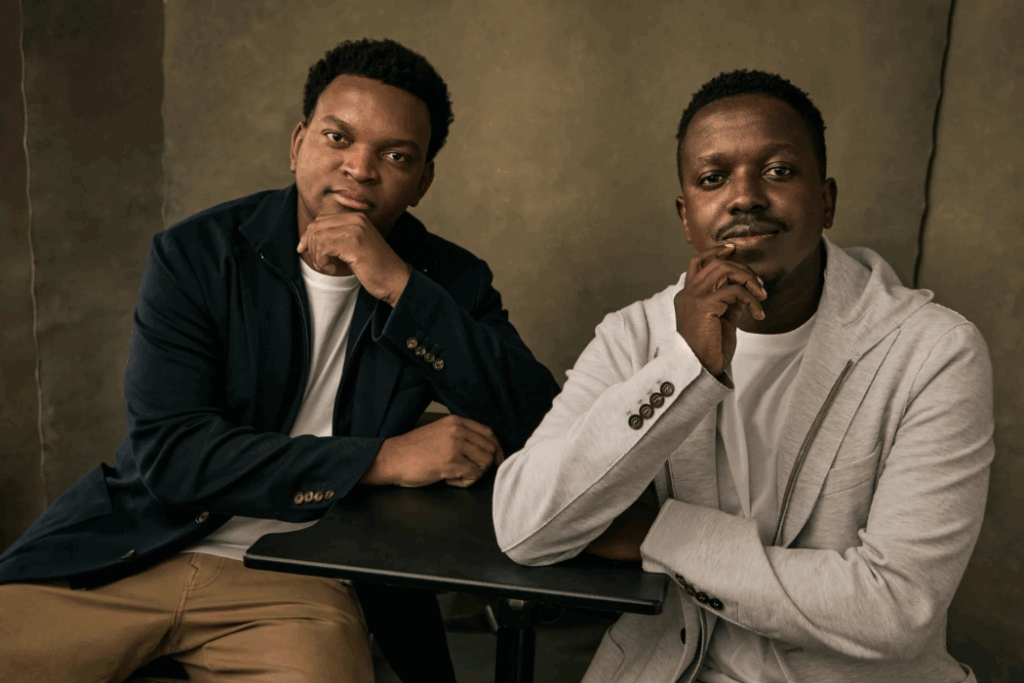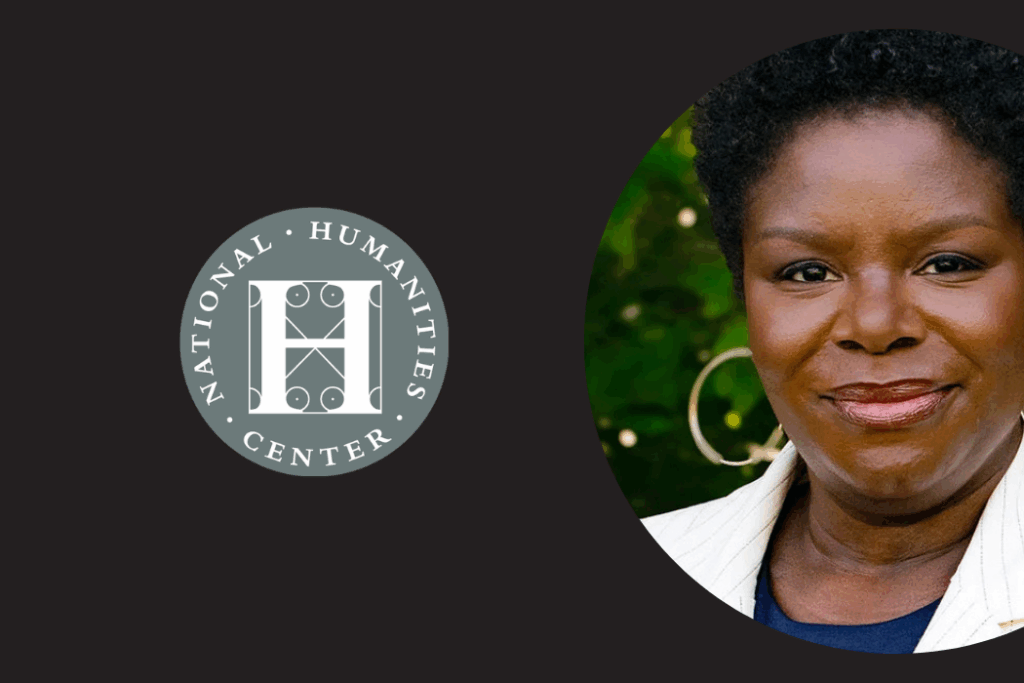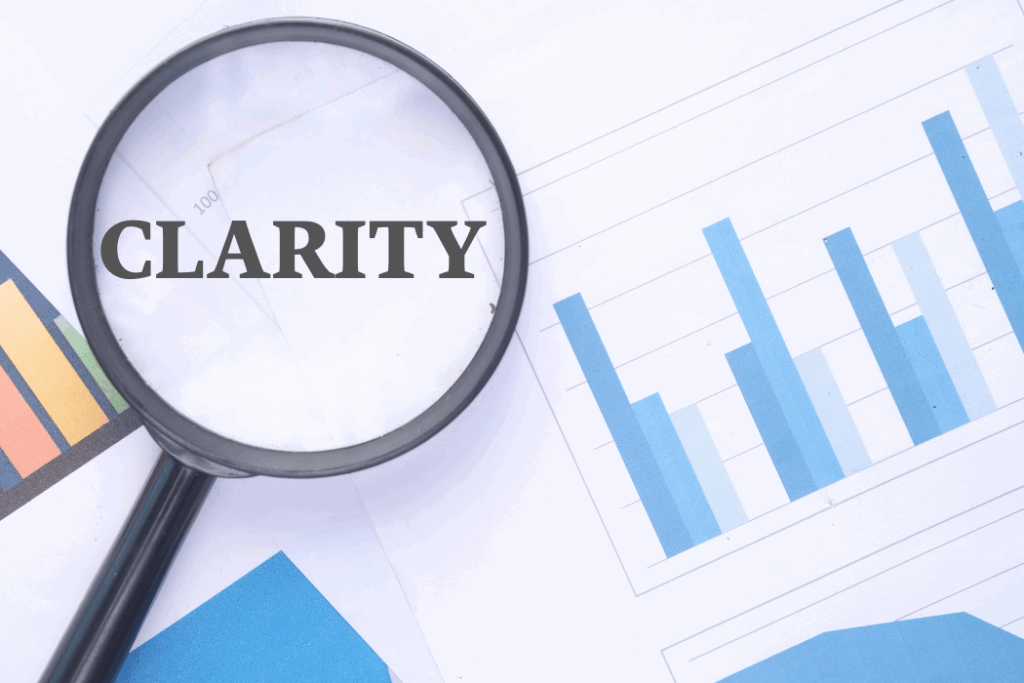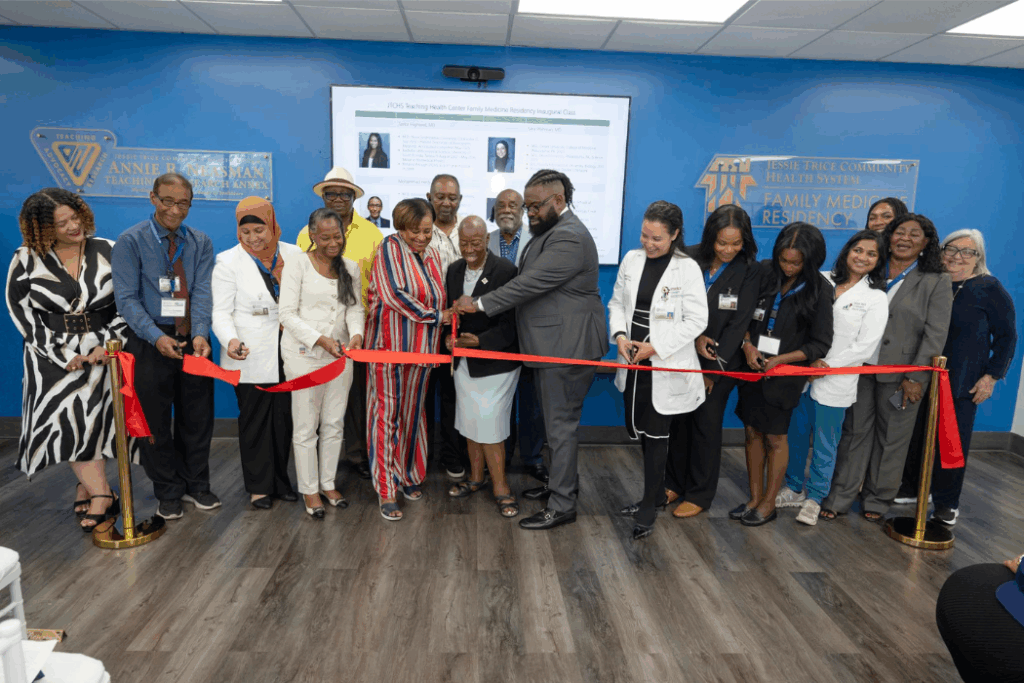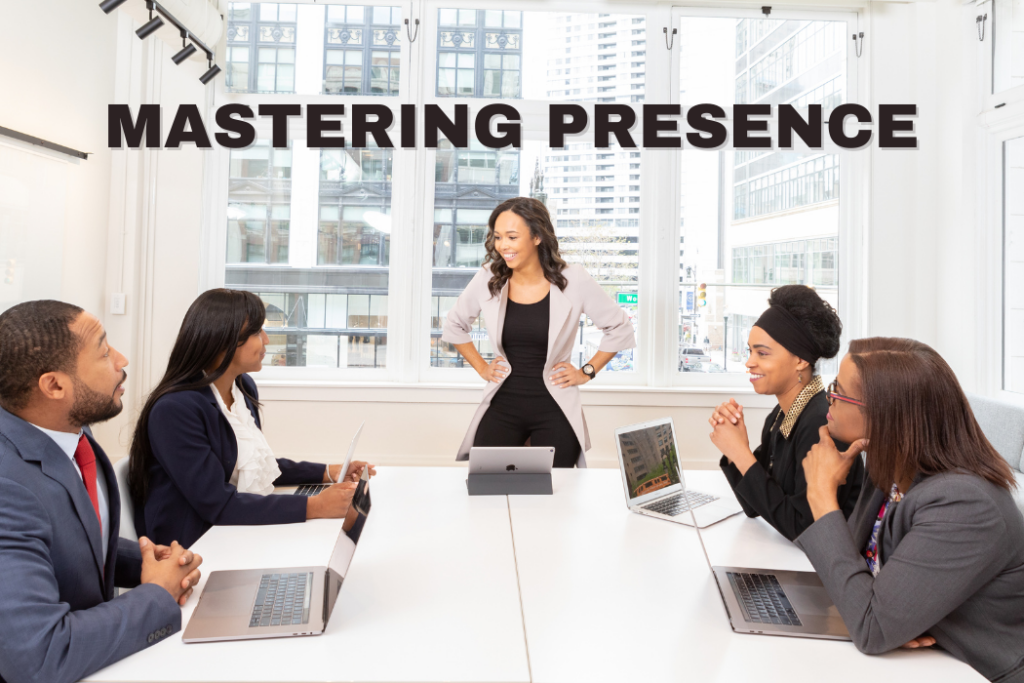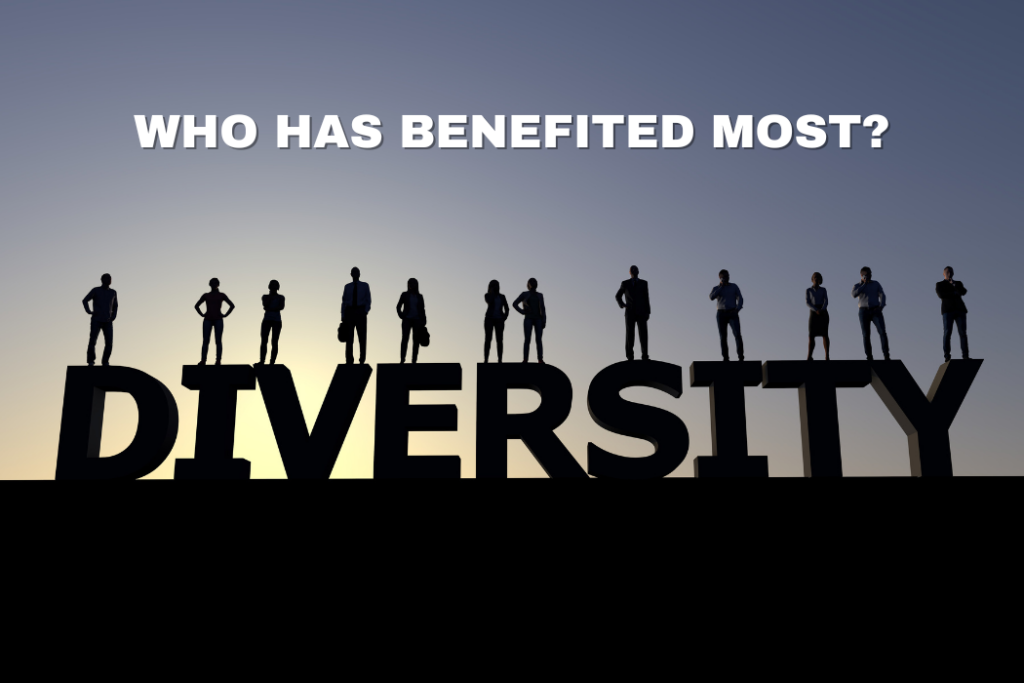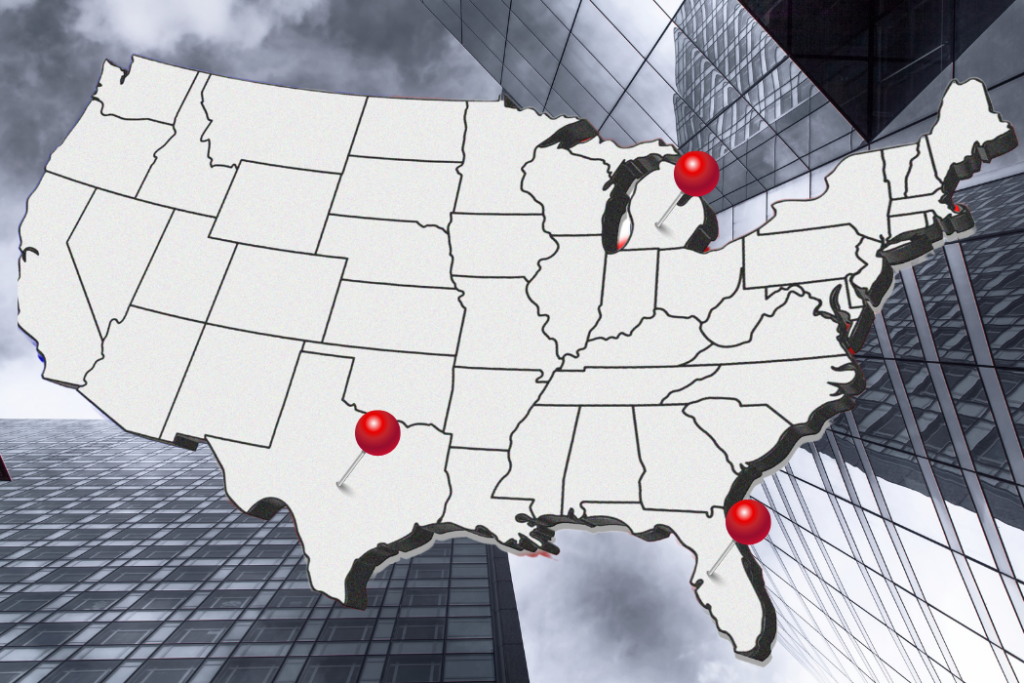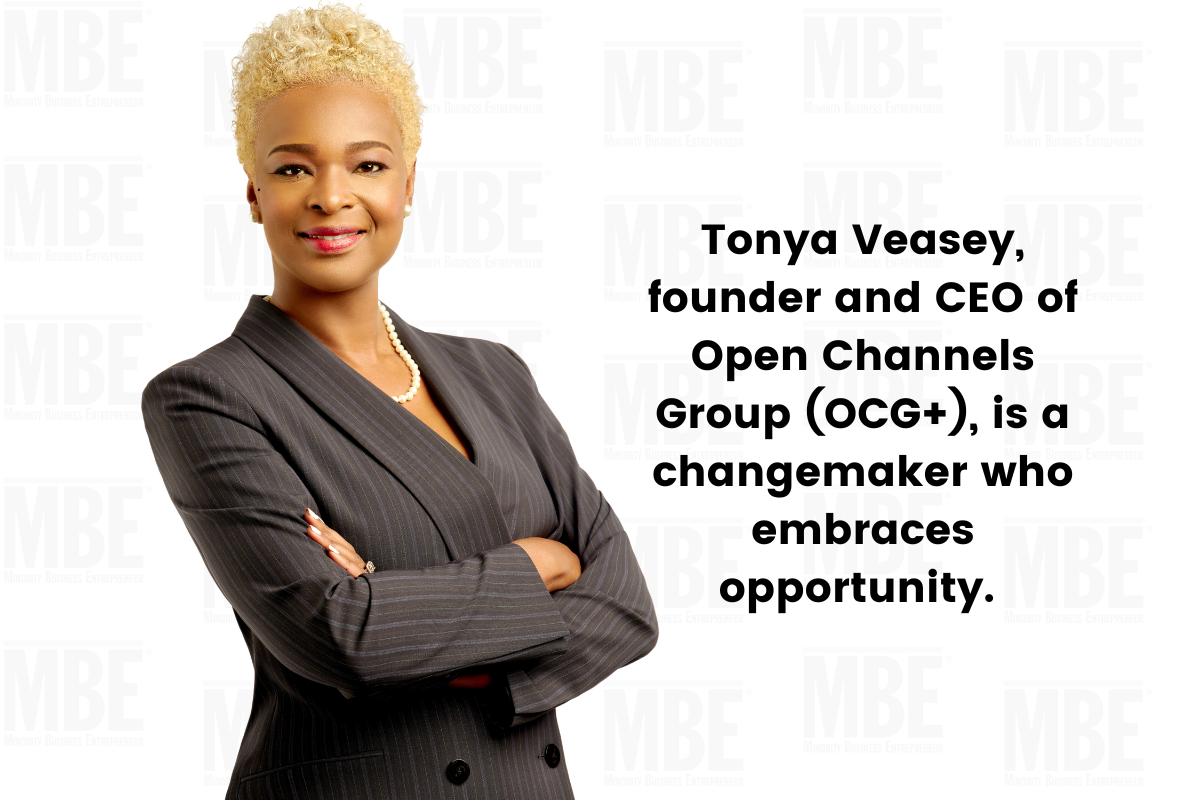
Tonya Veasey, founder and CEO of Open Channels Group (OCG+), is a changemaker who embraces opportunity.
Her love of entrepreneurship started at an early age and her eventful career has been defined by taking chances on herself and on the doors that have been opened to her. Veasey’s first job was a way to make ends meet, but it became the foundation to her journey of building relationships, removing barriers, and helping organizations create lasting change.
After years working in politics, nonprofits, and corporate America, Veasey founded OCG+ as a traditional public affairs firm in 2006. In the last few years, however, she’s pivoted to focus on solving problems in the social impact, corporate responsibility, and diversity, inclusion and equity spaces.
“We help companies connect the dots when it comes to their mission and vision for impact, and the communities that they want to connect with, and how we can partner to bring resources, awareness, and education to those communities,” Veasey says.
Today, OCG+ has transformed into a multimillion-dollar consultancy that helps build relationships, craft strategies, and find solutions for companies who want to create social impact in their organizations and communities.
The Path to Entrepreneurship
As the youngest of 10 children, Veasey had no shortage of mentors growing up. In fact, one of her older brothers owned his own janitorial business. Veasey did his taxes and helped around the store, which piqued her interest in owning a business early on.
“I really liked the idea that as an entrepreneur, you really can create your own destiny,” Veasey says. “I enjoyed watching my brother build something from the ground up for himself, not for someone else.”
When it came time for Veasey to forge her own path, she didn’t succeed right out of the gate. She enrolled in Grambling State University, a public historically black university in Grambling, Louisiana, but only stayed for one year. After that, she returned home, worked a day job, and attended classes at a local junior college while she decided what was next.
“One day, I was working at a UPS in the summer, and it was about 100 degrees in the warehouse. And I thought, this is not the life I want for myself,” Veasey says. “I had to do something to get my stuff together, and really start to take education much more seriously in a way that [would] afford me an opportunity to make a nice living for myself.”
That moment renewed her determination to succeed on her own terms and, she jokes, in a building with air conditioning. She enrolled at Paul Quinn College in Dallas, Texas, and soon graduated with her Bachelor of Applied Science in Organizational Management.
A Foundation Built on Opportunity
Shortly after graduating, fate stepped in to initiate Veasey’s journey in public service. A friend recommended her for a job as a state senator’s office assistant, and although Veasey had no experience in politics, she applied. It was the first of several jobs in communications that would fuel her interest in public affairs.
Eventually she landed at The Eppstein Group, a commercial communications company in the Dallas/Fort Worth area, and learned the ropes that would lead to her own consulting firm.
“That position [at Eppstein] allowed me an opportunity to work with people who thought differently than I did,” Veasey says. “I also thought the person I worked for was one of the best strategists that I ever had [seen]. It was a huge opportunity for me, and it really was the beginning of me thinking that I could do this as well.”
Veasey also met her husband, U.S. Rep. Marc Veasey, while she was active in local politics. He was working for a Texas congressman at the time, and the two met at a fundraising event. They married five years later and had a son, which changed Veasey’s path once again.
“I came back from maternity leave, and my job required me to do some traveling. At that time, my husband was a state representative, and one of us had to be at home,” Veasey says. “So, I thought, ‘If not now, then when?’ And I just decided I was going to start my own consulting company.”
In 2006, Veasey founded OCG+, a consultancy that quickly garnered a handful of clients, including her former employer who was quick to hire her as a consultant even after she left their organization. Over the next 14 years, she built a name for herself helping companies create relationships with decision makers and influencing regional and national policies. Over time, the company transitioned from its origins as a public affairs firm to a multicultural marketing firm, specializing in crafting campaigns for prominent companies such as Chesapeake Energy and AT&T.
From Public Affairs to Social Impact
At the beginning of the pandemic, Veasey was reconsidering the direction she wanted to take OCG+ once again, when a new path presented itself. In February 2020, she was asked to step in as interim president and CEO for the Congressional Black Caucus Foundation (CBCF).
During her tenure, she restructured the organization’s leadership team and more than doubled their annual revenue. More importantly, she launched the National Racial Equity Initiative to advance racial equity, human rights, education, and community/economic development opportunities for the Black community while combating systemic injustice throughout the country.
When she handed the reins of the CBCF to the next president, Veasey realized she couldn’t go back to running just a public affairs firm. She wanted to continue dedicating herself to social change.
“I think we all had that moment after the killing of George Floyd, [when] you had to take a step back and be like, [this is] happening. And for me, it wasn’t just what is happening, but how can I have an impact to prevent this from happening?” Veasey says. “So, I took some time to look at what I do well, and that is helping organizations create strategies that truly create change.”
Shortly thereafter, Veasey reinvented OGC+ as a social impact communications firm with two main focus areas. The first is helping organizations create a more diverse, equitable and inclusive workplace through training, goal setting, and inclusive leadership coaching and by facilitating connections with third-party partners. Veasey and her team not only help clients define their vision, but also understand what that vision means in relation to their company’s diversity, equity, and inclusion goals.
The second area relates to social impact, strategy, and programs. Veasey works with companies looking to solve a social issue and connects them with resources and training to solve the problems. She also assists them with marketing and public awareness campaigns that help connect organizations to the communities they seek to serve.
Restructuring OCG+ to help marginalized communities is more than just a professional pivot for Veasey. To her, it’s about utilizing her unique strengths to make a difference in the lives of others.
“The impact I want to have is to help underrepresented individuals have a voice in their workplace and their community,” Veasey says. “At the end of the day, I want to help those who have privilege understand how they can use it and empower them to use it. And for those who don’t have privilege, to give them a voice.”

